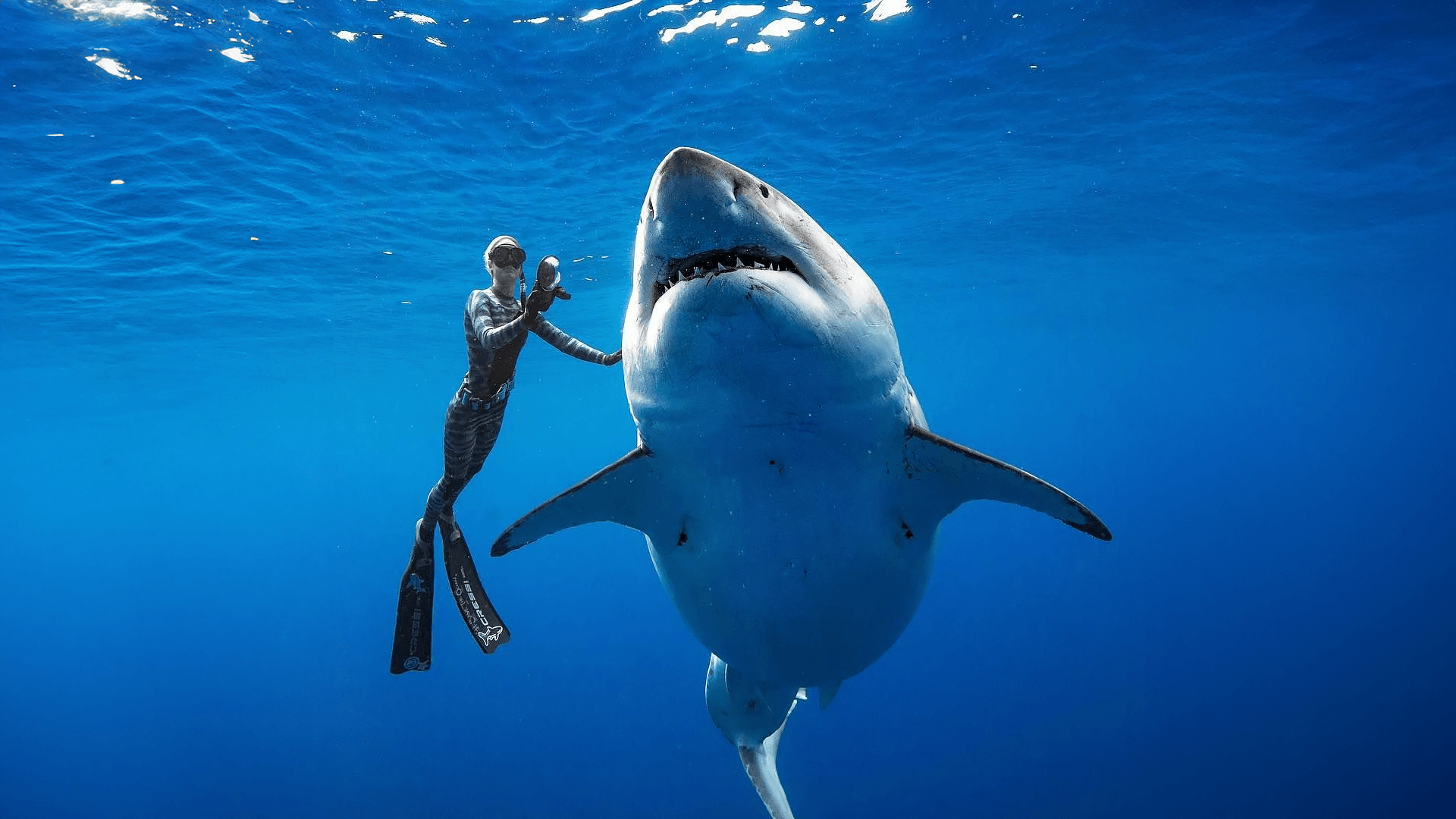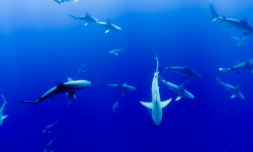Ocean Ramsey’s new Netflix documentary highlights her conservation journey, but has also reignited debate within the scientific community about her credibility and actual impact on shark conservation.
In a world where conservation efforts are of greater public interest than ever before, we’re not exactly short of wildlife influencers.
One of them just got a Netflix documentary released called Shark Whisperer. The film follows internet-famous Ocean Ramsey and her journey in shark conservation. However, outside the awe-inspiring footage lies a myriad of questions. Since Ramsey’s following started to increase, she has not been well-received by the marine biology community.
Don’t get it wrong, her efforts in shark conservation are admirable. The point of contention is the methods used that rubbed many the wrong way. Let’s dive into the BTS of how Ramsey has riled many scientists, and a fair portion of Netflix subscribers, up.
For starters, Ramsey is a shark conservationist, free diver, marine ethologist, author, and model (a key point to note). She runs One Ocean Diving, offering paid shark dives and marine education, and claims to have rescued over 1,000 sharks. Indubitably passionate about changing negative perceptions of the animals, she played a key role in passing a Hawaiian law banning shark killing.
When it comes to Ramsey’s credentials, though, things get really blurry. On several platforms, Ramsey has been described as a marine biologist. To qualify as such, one must engage in the scientific study of living organisms in their field, which involves research, data collection, analysis, and contributing to scientific knowledge through various publications.
Nevertheless, in several blog posts that she has written, she’s gone on to disregard the importance of science in conservation. To quote, ‘most marine biologists study systems and only a few good ones that research, if even useful, and try to apply it to make a positive change’.
Other comments include calling research ‘an old school, ego-driven approach that prioritises ‘data collection’ over animal welfare’. You’re probably starting to understand why a fair few marine biologists are ripping her to shreds now.
It’s argued that claiming to be a scientist while promoting risky shark interaction methods lacks scientific integrity. Her company has claimed to collect valuable data on human-shark interactions and individual shark identification, which could aid marine biologists in conservation efforts. Despite her apparent willingness to share said data, however, Ramsey has not actively done so.



















